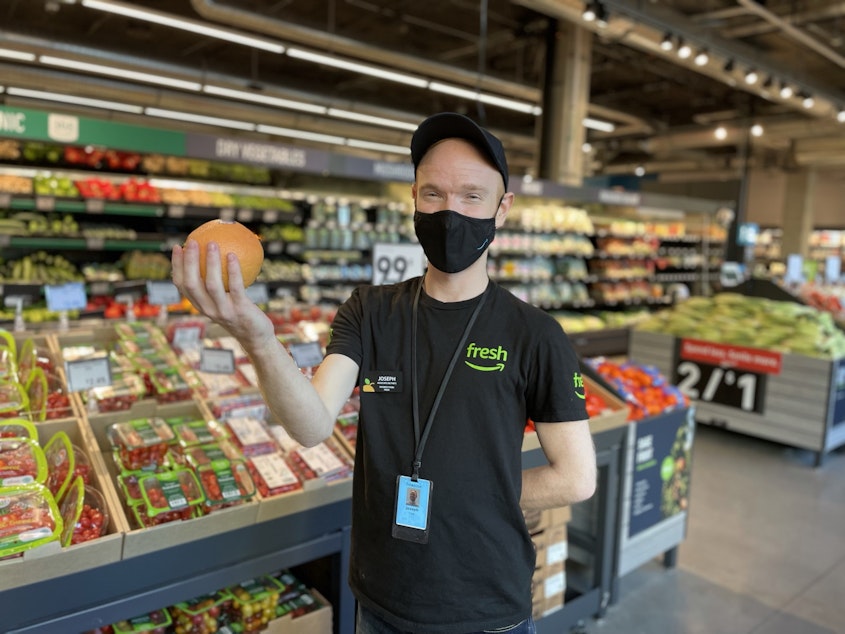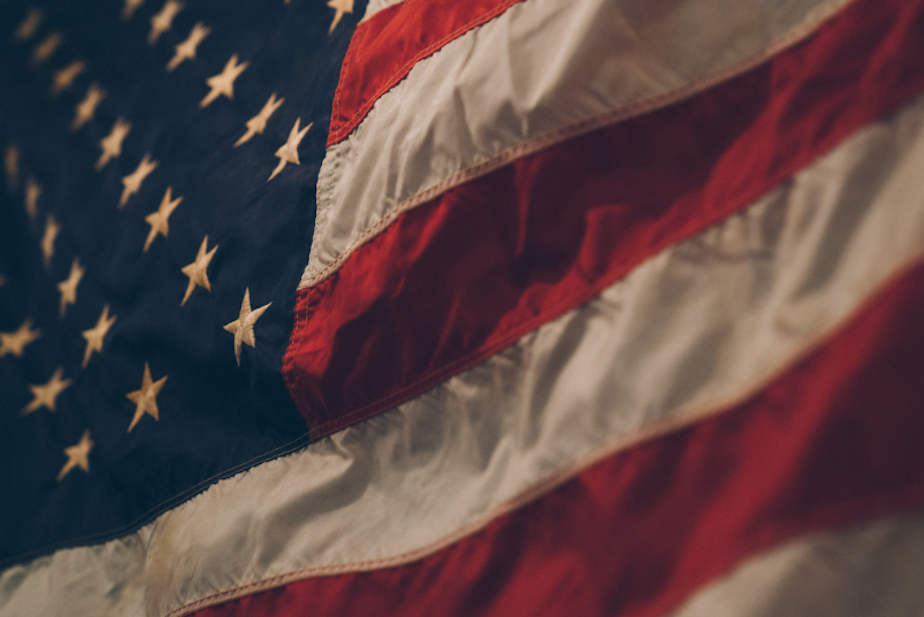A floating roof over their heads: Today So Far

Costs of living around western Washington have swelled so much that some people are being pushed out of town and into the sea. While obtaining liveaboard status in Puget Sound is not easy, living on a boat is a solution that officials may have to catch up to.
This post originally appeared in KUOW's Today So Far newsletter for Feb. 22, 2022.
There's a saying among boaters: "A boat is a hole in the water that you throw your money into." But whenever I heard this said on the docks where I lived, I wondered if people would say the same about their house. After all, paying to keep up a roof, landscaping, utilities, and so on — one could say that a house is a hole in the ground that you throw your money into.
OK, yes, there are significant financial differences between a boat and property on land. One is an investment and the other is upkeep. But in the five winters I spent as a liveaboard in Puget Sound (I counted the years in winters), you couldn't tell me that I didn't have a home — one that I cherished.
All of that came to mind after reading Soundside's story about the "Wild West" on the waters of Puget Sound. There are a lot of issues at play in this story, spanning derelict boats to the environment and homelessness. But the aspect I want to point out is affordable housing. Boats can be a form of affordable housing to many in our region, where higher and higher costs of living push many out of town and into the sea.
At the first marina where I was a liveaboard, I paid $700-ish for my rent (this was around Bainbridge Island where they have Seattle+ prices). One neighbor, a married couple, previously lived in a multimillion-dollar shoreline home before moving onto their boat. My other neighbor was on parole with limited housing options. I generally found that folks assumed I fit into either one of those characterizations when they heard I lived on a boat. I didn't. I was a community reporter who could not afford rent in the community I reported on. But I was lucky — I had a generous relative with a boat. And I was able to obtain liveaboard status (at the time, there was some tension between liveaboards and shoreline homeowners who didn't like boats in their view, and perhaps the characters that came with them).
When I moved for work (I loved moving on a boat — no boxes!) I ended up joining a yacht club to, again, get liveaboard status. I learned that not all yacht clubs were as snooty as Hollywood would have us believe, and that rent was much cheaper away from Bainbridge — $280 a month. This was affordable housing for me as a reporter earning less than Seattle's $15 minimum wage. It was the same for many others I met, if they could get past restrictions on liveaboards. Many marinas are capped on the number of liveaboards they can host — usually just 10% of their capacity.
Sponsored
I was forced to move onto land when I went to work in Seattle six years ago. There were no liveaboard spots I could find (I'm probably still on a few waiting lists). I found myself in Seattle's increasingly-tight housing market with skyrocketing costs of living. I could complain, but the truth is, I had it pretty good the whole time, even in Seattle. Especially when you hear stories of people like Ian and Becky Thompson, who Soundside recently profiled. At an age when many people are thinking about retirement, they went from living in a tent in Fremont to making ends meet on a boat in Puget Sound. Despite difficulty finding permanent moorage, that boat is a stable roof over their heads.
There are many others like them across our western Washington communities where you can find boats selling at seemingly great, cheap prices. Though many find that the great "deal" they got is more of a trap and an expensive obligation. That can lead to many of the derelict boats abandoned across the state. And the officials assigned to take care of them are having trouble keeping up. It's a problem. At the very least, it's an environmental concern.
At each step in my liveaboard journey, I was just trying to live in the community where I worked. I'm hoping this single, anecdotal account helps folks understand that not all liveaboards are ritzy yacht owners or impoverished, novice seafarers leaving oil sheens across Puget Sound. It's a range. And in our area, it's a solution that officials may have to catch up to.
Check out Soundside's full story here.
Here are a few other stories that KUOW has recently reported:
- King County repeals bike helmet law, but all sides still agree: wear your helmet
- Something wicked this way codes: The rise of the tech villain in pop culture
- Workers at Seattle Amazon Fresh store say they've formed a union
- Washington says goodbye to its mask mandate, but not its state of emergency...yet
Have a comment or want to reach out to me? Send me an email at dyer@kuow.org.
AS SEEN ON KUOW

Joseph Fink, an employee at Amazon Fresh at 23rd and Jackson in Seattle, is a member of the newly-formed union "Amazon Workers United." Fink helped form the union. (Joshua McNichols / KUOW)
Sponsored
DID YOU KNOW?
I've heard this story before, about the Beatles, but I've never tracked down its accuracy. The sentiment behind it is true, however. When the Beatles came to the U.S. in 1964, they immediately sat down for a press conference where a reporter asked them what they wanted to see most in the country. They said: "Bo Diddley and Muddy Waters." The reporter replied: "Where's that?"
Their response: "You Americans don't seem to know your most famous citizens."
The 1960s has been called the "British Invasion," noting the immense wave of music coming to America from the U.K. While it's true that the bands were British, in reality, the U.K. was taking U.S. music and feeding it back to us. Artists like John Lennon, Mick Jagger, Jimmy Page, or Van Morrison traveled great distances to find stores with blues and rock n' roll records from America; mostly produced by Black artists who didn't sell as well domestically at the time. They would consume everything from Bo Diddley to Muddy Waters, Little Richard to BB King. It was those songs they learned, mimicked, tweaked, and brought back to America. A good example is "The House of the Rising Sun," an Appalachian song that has a plethora of versions spanning folk to blues. But you most likely know the Animal's iconic version.
After a few decades of musical pop culture evolution, you get this quote from Slash of Guns n’ Roses fame. Slash's mother was African American and his father is British.
"As a musician, I've always been amused that I'm both British and Black; particularly because so many American musicians seem to aspire to be British while so many British musicians, in the '60 in particular, went to such great pains to be Black."
ALSO ON OUR MINDS

1 in 10 Black people in the U.S. are migrants. Here's what's driving that shift
The breadth of what it means to be a Black American is widening, according to new analysis of the latest migration statistics. The Pew Research Center combed through the U.S. Census data and found the percentage of the Black population that had migrated to the United States had more than tripled over the last 40 years.

